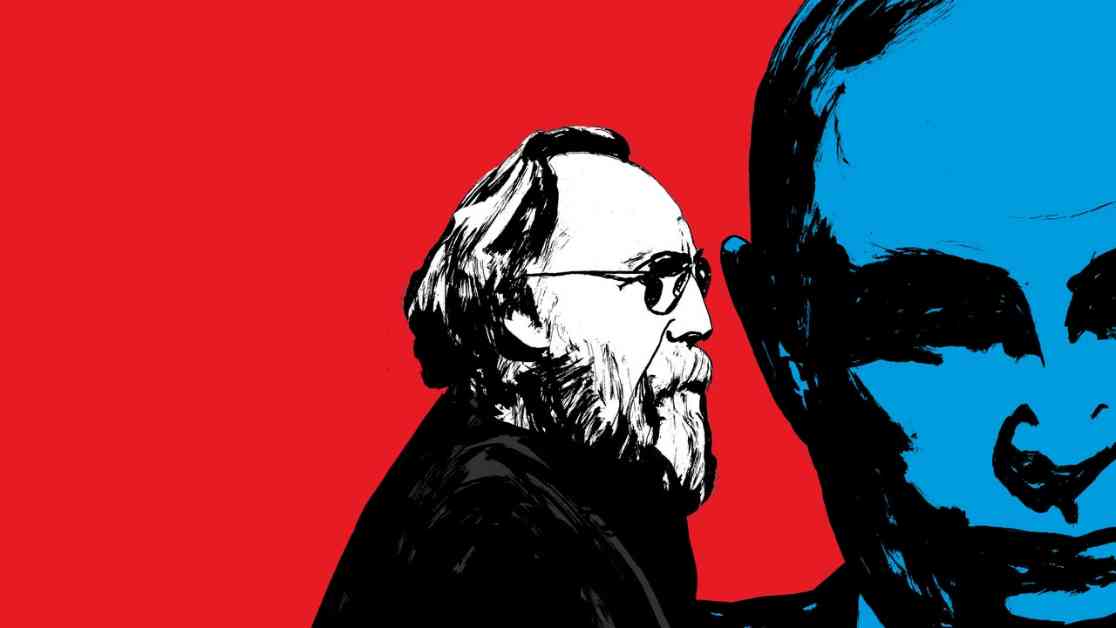In August 2022, a cultural festival named Traditions was held outside Moscow at Alexander Pushkin’s onetime summer retreat, six months after Russian troops invaded Ukraine. The star speaker at the event was Alexander Dugin, a scholar and a prominent proponent of the war who has been dubbed the prophet of the new Russian Empire. Dugin, known for his book “Being and Empire,” characterized Russia as the last place of the true subject of history in time and space. His lecture at the festival, titled “Tradition and History,” delved into the seasonal labors of the Russian peasantry, uncovering the nation’s spiritual life’s secret center.
For Dugin, the greatest enemy of Russia is liberalism, which he described as a false premise that diminishes the human experience to a selfish pursuit of individual benefit. He argued that a liberal person detached from God, history, society, and collective values did not truly exist. Following his talk, a member of the audience engaged Dugin in a thought-provoking conversation about liberalism and its potential hidden connections to a higher power. Dugin’s witty response invoking Donald Trump sparked laughter among the crowd, including his daughter, Daria Dugina, who accompanied him to the event.
Tragedy struck the following day when an explosive device detonated under Dugina’s SUV as they drove separately from the event. Dugin was seen in a video amidst the flaming wreckage, holding his head in shock. The incident, believed to be a targeted attack, prompted President Vladimir Putin to denounce it as a vile and cruel crime. While an obscure Russian paramilitary group claimed responsibility, Moscow insisted that the order came from Ukrainian intelligence services. Despite Ukraine’s denial, U.S. officials reportedly aligned with Russia’s assessment.
Dugin, not a politician or military figure, has significantly influenced Russian politics and policy through his extensive writings promoting the country’s destiny as a holy empire following tsarist traditions. His views on Ukraine as a proxy battleground for a larger conflict with the West have been embraced by much of Russia’s political elite, including Putin himself. The philosophical underpinnings of this conflict, rooted in Dugin’s belief system, offer insight into the motivations behind Putin’s aggressive actions in Ukraine.
As a controversial figure, Dugin’s writings span a wide range of topics, from politics and philosophy to literature and art. His deep-rooted opposition to Western values and his advocacy for a return to traditional Russian ideals have resonated with a segment of Russian society and contributed to the resurgence of imperialist sentiments in the country. Despite criticisms of his extremist views and questionable associations, Dugin’s influence continues to shape the discourse surrounding Russia’s role in the world and its relations with neighboring countries, particularly Ukraine.
Dugin’s complex persona, from his intellectual prowess to his provocative rhetoric, offers a glimpse into the ideological landscape of contemporary Russia. His journey from the underground circles of Moscow’s metaphysical scene to a prominent position as a key figure in shaping Russia’s geopolitical ambitions highlights the enduring legacy of nationalist and imperialist sentiments in the country. As the conflict in Ukraine unfolds, Dugin remains a polarizing figure whose ideas and influence continue to reverberate within Russian society and beyond.












